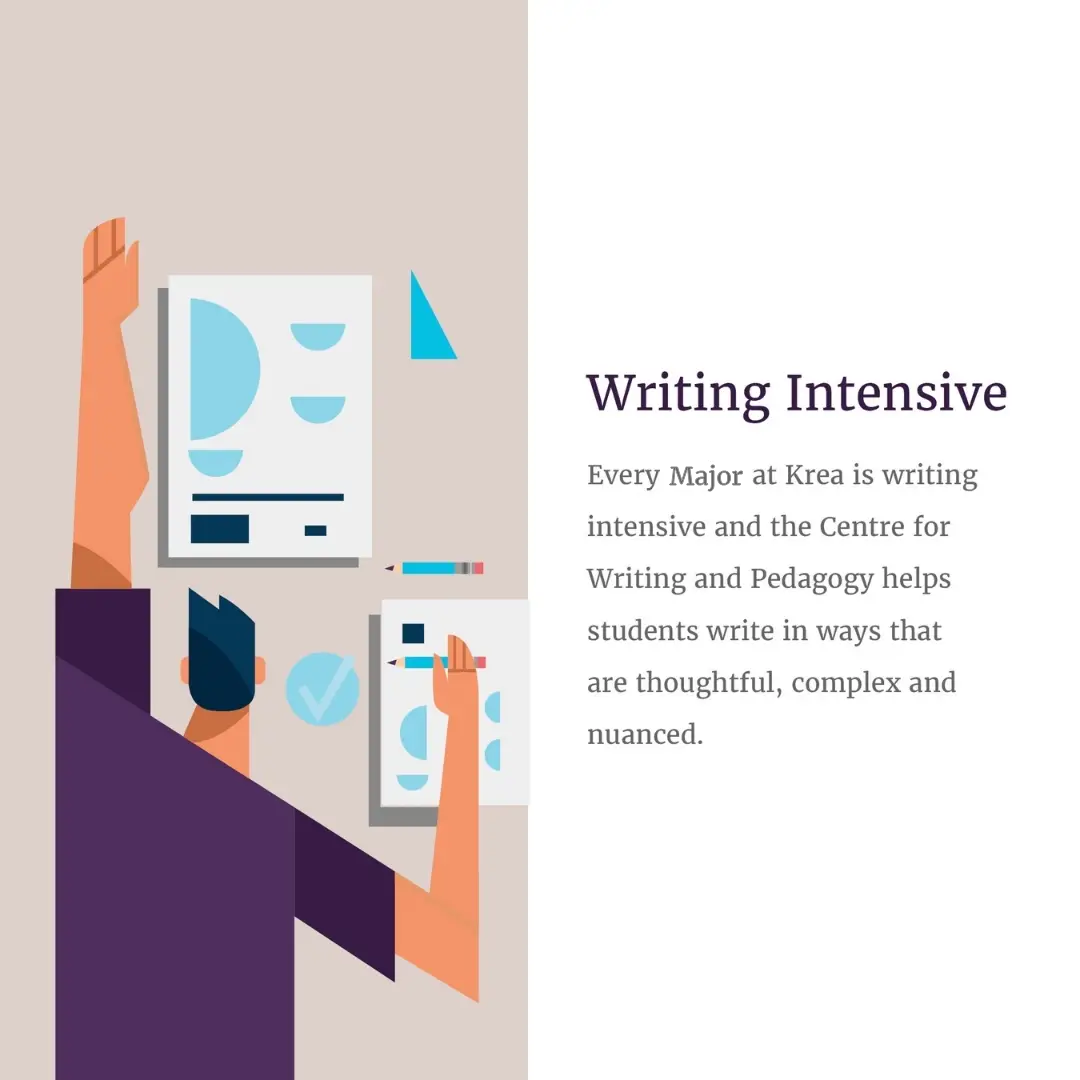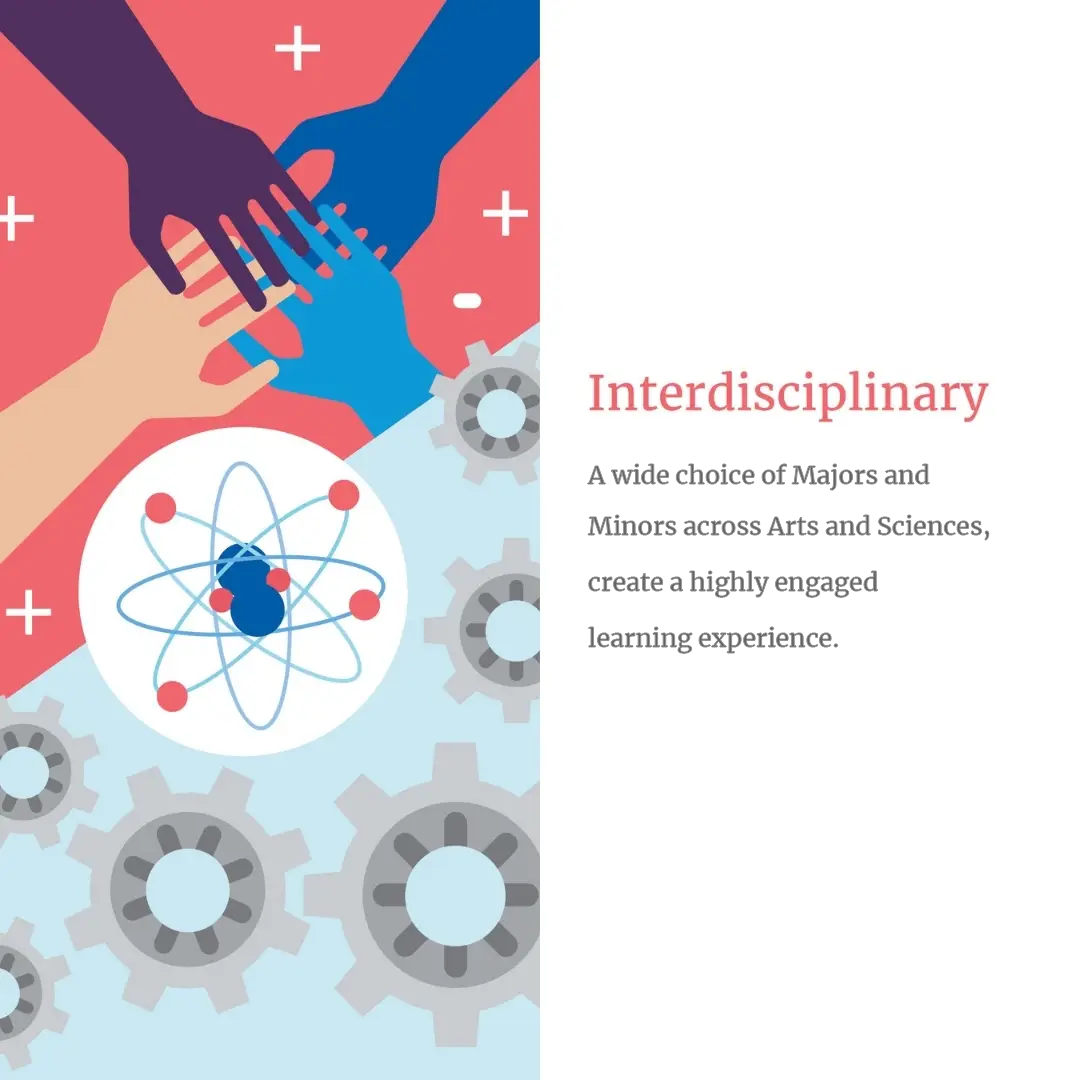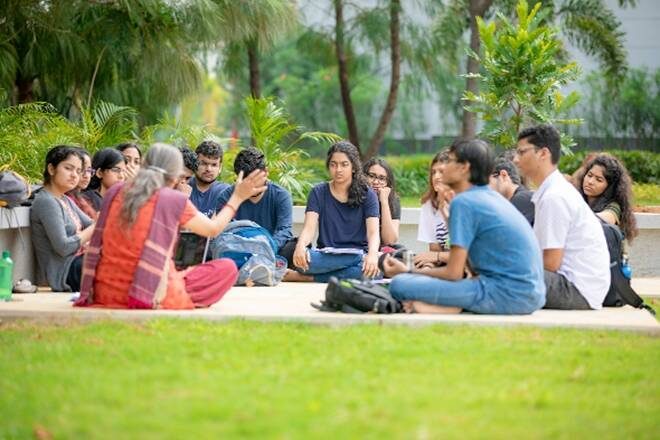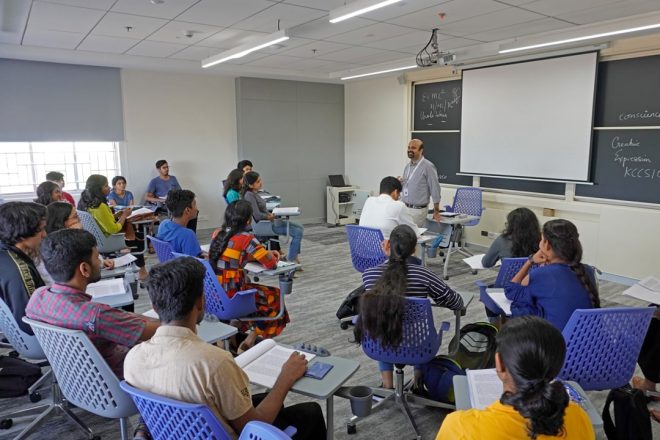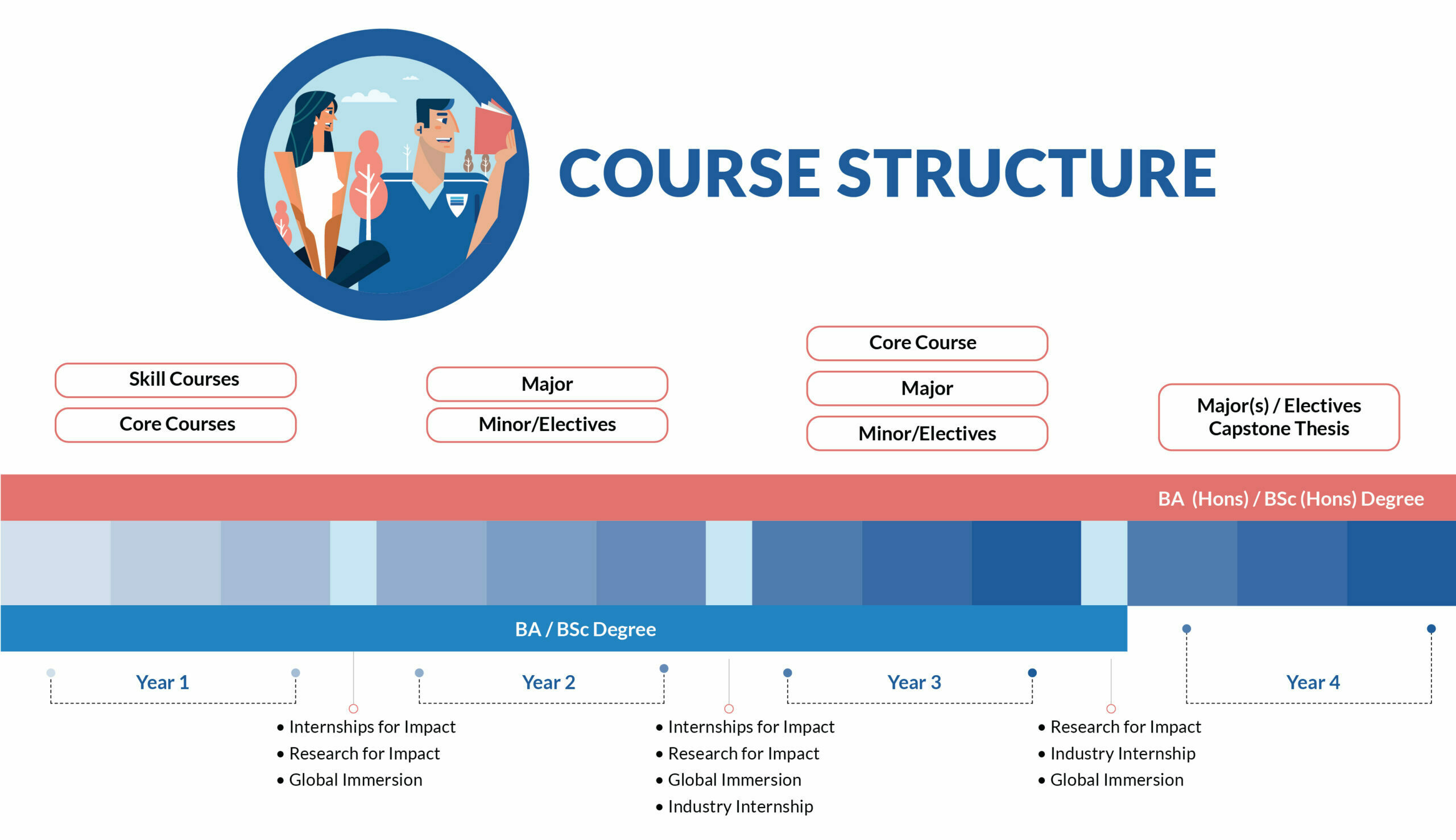Crafting undergraduate curriculum for an institution such as Krea is a challenging task given the university’s mission, principles and ethos. It requires the best minds to assess the curriculum and provide apt advice to make the undergraduate programme innovative, challenging, pedagogically inventive and adaptive. Fortunately, many eminent experts contributed to this process. Krea gratefully acknowledges the contributions of these academicians, scholars and professionals in shaping our curriculum.
T R RamadasProfessor of Mathematics
Chennai Mathematical Institute
Chennai Mathematical Institute
V Balakrishnan Professor of Physics
Indian Institute of Technology, Chennai
Indian Institute of Technology, Chennai
R Shankar J.W.B Gibbs Professor of Physics
Yale University
Yale University
S SrihariProfessor of Chemistry
Indian Institute of Technology, Kanpur
Indian Institute of Technology, Kanpur
Christian GriesingerProfessor
Max Planck Institute of Biophysical Chemistry Gottingen
Max Planck Institute of Biophysical Chemistry Gottingen
Andrew Berry Lecturer - Organismic and Evolutionary Biology
Harvard University
Harvard University
Siddharth BalachandranProfessor
Blood Cell Development and Function Program
Fox Chase Cancer Center, Philadelphia
Blood Cell Development and Function Program
Fox Chase Cancer Center, Philadelphia
Jessica SeddonGlobal Lead
Air Quality World Resource Institute
Air Quality World Resource Institute
Bill McKibbenSchumann Distinguished Scholar
Middlebury
Middlebury
Gaurav Raina Professor
Indian Institute of Technology, Chennai
Indian Institute of Technology, Chennai
Madhavan MukundProfessor of Computer Science
Chennai Mathematical Institute
Siruseri, Chennai
Chennai Mathematical Institute
Siruseri, Chennai
Shika DixitProfessor of Psychology
Indian Institute of Technology, Kanpur
Indian Institute of Technology, Kanpur
Pranab Bardhan Professor of Economics
University of California, Berkeley
University of California, Berkeley
Pulapre BalakrishnanProfessor of Economics
Ashoka University
Ashoka University
Uma ChakravartiProfessor of History
Miranda House, University of Delhi
Miranda House, University of Delhi
Faisal DevjiProfessor of History
Oxford University
Oxford University
Parimal G PatilProfessor of Religion and Indian Philosophy
Harvard University
Harvard University
Kanchana Mahadevan University of Mumbai
Srinath RaghavanProfessor of History and International Relations
Ashoka University
Ashoka University
Dwaipayan Bhattacharyya Professor of Political Science
Centre for Political Studies, Jawaharlal Nehru University
Centre for Political Studies, Jawaharlal Nehru University
Bonnie WadeProfessor of Music
University of California, Berkeley
University of California, Berkeley
Chaya ChandrasekharScholar of Art History
Former Associate Professor & Chair, Department of Art, Marietta College
Former Associate Professor & Chair, Department of Art, Marietta College
Udaya Kumar Professor
Centre for English Studies, Jawaharlal Nehru University
Centre for English Studies, Jawaharlal Nehru University
